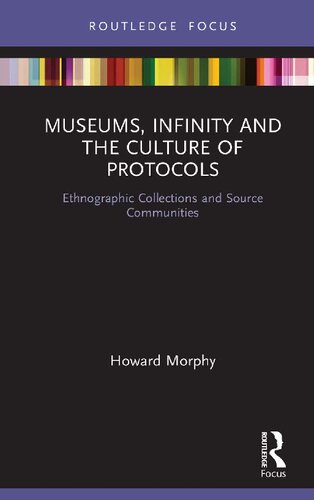

Most ebook files are in PDF format, so you can easily read them using various software such as Foxit Reader or directly on the Google Chrome browser.
Some ebook files are released by publishers in other formats such as .awz, .mobi, .epub, .fb2, etc. You may need to install specific software to read these formats on mobile/PC, such as Calibre.
Please read the tutorial at this link: https://ebookbell.com/faq
We offer FREE conversion to the popular formats you request; however, this may take some time. Therefore, right after payment, please email us, and we will try to provide the service as quickly as possible.
For some exceptional file formats or broken links (if any), please refrain from opening any disputes. Instead, email us first, and we will try to assist within a maximum of 6 hours.
EbookBell Team

4.3
8 reviewsMuseums, Infinity and the Culture of Protocols enters a dialogue about museums’ responsibility for the curation of their collections into an infinite future while also tackling contentious issues of repatriation and digital access to collections.
Bringing into focus a number of key debates centred on ethnographic collections and their relationship with source communities, Morphy considers the value material objects have to different ‘local’ communities – the museum and the source community – and the value-creation processes with which they are entangled. The focus on values and value brings the issue of repatriation and access into a dialogue between the two locals, questioning who has access to collections and whose values are taken into consideration. Placing the museum itself firmly at the centre of the debate, Morphy posits that museums constitute a kind of ‘local’ embedded in a trajectory of value.
Museums, Infinity and the Culture of Protocols challenges aspects of postcolonial theory that position museums in the past by presenting an argument that places relationships with communities as central to the future of museums. This makes the book essential reading for academics and students working in the fields of museum and heritage studies, anthropology, archaeology, Indigenous studies, cultural studies, and history.